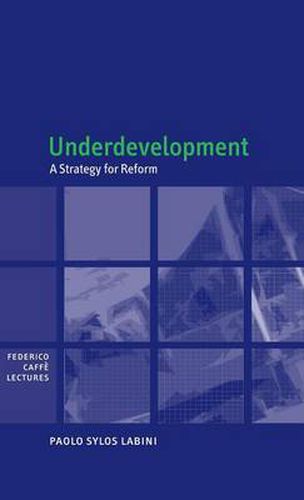Readings Newsletter
Become a Readings Member to make your shopping experience even easier.
Sign in or sign up for free!
You’re not far away from qualifying for FREE standard shipping within Australia
You’ve qualified for FREE standard shipping within Australia
The cart is loading…






The process of globalisation, evidenced by environmental change, migration, industrial relation and the extraordinary acceleration of industrial economic relations, has not led to increased convergence in the global economy. Rather, in some cases it has been accompanied by greater divergence between the fortunes of the world’s richest and poorest nations. Professor Sylos Labini argues that mainstream economics provide limited help in considering these phenomena and instead adopts the perspectives of Adam Smith, David Riccardo and Malthus, who put economic growth at the centre of their analyses. In this short book he offers a new approach to the theory of economic growth and reminds us of the great variety of economic trajectories in developing countries. He further proposes a strategy of institutional reform to respond to the problem of underdevelopment. For Africa he recommends a strategy of organizational reforms, including a programme to eradicate illiteracy and to promote rural and industrial districts.
$9.00 standard shipping within Australia
FREE standard shipping within Australia for orders over $100.00
Express & International shipping calculated at checkout
The process of globalisation, evidenced by environmental change, migration, industrial relation and the extraordinary acceleration of industrial economic relations, has not led to increased convergence in the global economy. Rather, in some cases it has been accompanied by greater divergence between the fortunes of the world’s richest and poorest nations. Professor Sylos Labini argues that mainstream economics provide limited help in considering these phenomena and instead adopts the perspectives of Adam Smith, David Riccardo and Malthus, who put economic growth at the centre of their analyses. In this short book he offers a new approach to the theory of economic growth and reminds us of the great variety of economic trajectories in developing countries. He further proposes a strategy of institutional reform to respond to the problem of underdevelopment. For Africa he recommends a strategy of organizational reforms, including a programme to eradicate illiteracy and to promote rural and industrial districts.